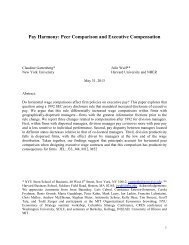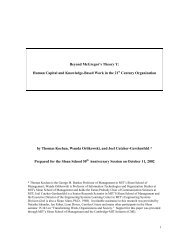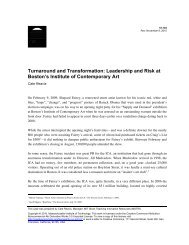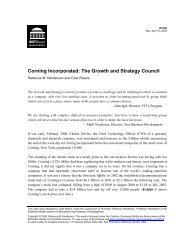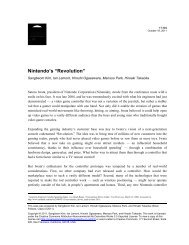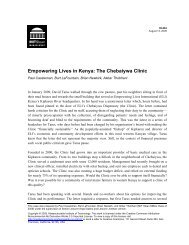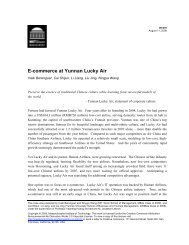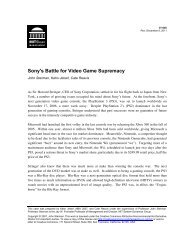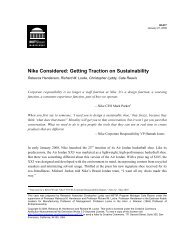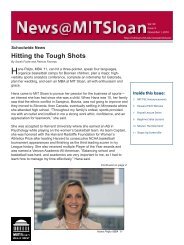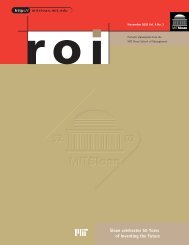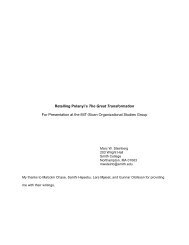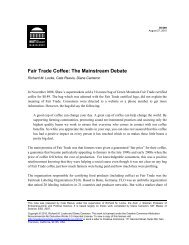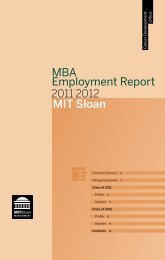Understanding earnings quality - MIT Sloan School of Management
Understanding earnings quality - MIT Sloan School of Management
Understanding earnings quality - MIT Sloan School of Management
You also want an ePaper? Increase the reach of your titles
YUMPU automatically turns print PDFs into web optimized ePapers that Google loves.
5.6.3 Tax regulations<br />
Several studies exploit the LIFO conformity rule in the U.S. tax system to test whether<br />
incentives to minimize tax costs (i.e., present value <strong>of</strong> tax payments) affect accounting method<br />
choice, which in turn affects EQ. For example, Lee and Hsieh (1985), Hunt (1985), and Dopuch and<br />
Pincus (1988) document both tax (e.g., the magnitude <strong>of</strong> tax savings) and nontax explanations (e.g.,<br />
contracting costs) for the choice <strong>of</strong> inventory accounting methods. Keating and Zimmerman (1999)<br />
exploit a natural experiment due to a 1981 tax law change that mitigated the impact <strong>of</strong> tax<br />
considerations on financial reporting depreciation choices and find an increase in the frequency <strong>of</strong><br />
income-increasing depreciation estimate choices and a decrease in the frequency <strong>of</strong> income-<br />
increasing depreciation method changes after the 1981 tax law change. Guenther, Maydew, and<br />
Nutter (1997) exploit a change in book-tax conformity associated with the Tax Reform Act <strong>of</strong> 1986<br />
(TRA) and find that firms that are required to switch from the cash method to the accrual method<br />
have higher (lower) accruals than firms that already use the accrual method prior to (following) the<br />
rule change.<br />
Five papers in our database examine the effects <strong>of</strong> rate changes associated with the TRA and<br />
suggest that the rate change had a one-time impact on accruals choices around the period <strong>of</strong> the<br />
change. Scholes, Wilson, and Wolfson (1992), Guenther (1994), and Maydew (1997) conclude that<br />
firms shift income from the pre-TRA period to the lower tax-rate regime period by deferring revenue<br />
and accelerating expenses. The evidence on income shifting in the opposite direction to avoid the<br />
U.S. corporate alternative minimum tax (AMT), however, is inconsistent (Boynton, Dobbins, and<br />
Plesko, 1992; Choi, Gramlich, and Thomas, 2001).<br />
Two additional studies suggest that changes in tax incentives associated with the TRA led to<br />
a shift in accounting choices that will affect EQ on an on-going basis. The TRA increased the<br />
116



